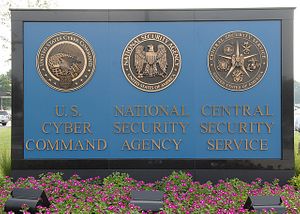In two recent posts (here and here), I have deliberately tried to hew to the KISS (Keep it simple, stupid) principle when discussing the U.S. military. My principle points were that a.) The detailed article “The Tragedy of the American Military” written by James Fallows has re-ignited an important debate on civil-military relations in the United States; b.) Most debates about the role of the Pentagon in the United States – especially among “experts” – often get bogged down in petty details (e.g., follow the debate about the legacy of this guy) without addressing broader, more fundamental questions (e.g., Is the alleged single-minded adulation of a professional military force reconcilable with American values in the long run?); and c.) Most U.S. policymakers have a fundamentally flawed or no understanding how the U.S. Armed Forces are perceived abroad, partially caused by what Fallows calls, “the reverent but disengaged attitude toward the military.”
Today, I would like to add an additional (albeit simple) point: The militarization of U.S. foreign policy makes it more likely that other countries will perceive the United States as dangerous and hostile, and this is not in the U.S. national interest.
One example is the slow progress on cooperation between the United States and China on cybersecurity. Despite various friendly overtures by the United States, the Chinese are still reluctant to sit down with the Americans and discuss ways to establish something akin to strategic stability in cyberspace. Beijing’s main critique is that the United States is militarizing cyberspace.
My point here is neither to deny that both countries are engaged in a long-term strategic competition, nor that a military component to this competition (in cyberspace) is a necessity given the nature of the current international system. Rather, I suggest that cooperation might be easier if China were not to assume that the U.S. military establishment dominates the discussion on cybersecurity within the U.S. government. As I pointed out here, this only feeds into Chinese fears of technological and military inferiority vis-à-vis the United States.
We tend to forget that the principle objective of any military is “the management of violence” as Samuel Huntington notes in The Soldier and the State. Thus, having the military too deeply involved in a field in which one of the operating principles is non-confrontation may send the wrong signal to the other side. Scanning various Chinese, Russian, Indian and European commentaries and analyses, the fear of a continuing militarization of U.S. foreign policy is pervasive.
According to Gordon Adams and Shoon Murray in their book Mission Creep – The Militarization of US Foreign Policy, militarization means, “a growing trend to view decisions on national security strategy, policies, and policy implementation from a military perspective.” The authors point out that this means that, “Foreign policy issues and security challenges discussed at the senior policymaker level are framed as military challenges, most readily susceptible to policy solutions and programs for which military capabilities are seen as the appropriate response.”
For example, returning to (the lack of) China-U.S. cooperation on cybersecurity, the merging of the position of the head of U.S. Cyber Command with that of the director of the National Security Agency (NSA), while perhaps making sense from an organizational point of view, only amplifies the sense that the United States is also militarizing cyberspace, underlining the old “if all you have is a hammer, every problem looks like a nail” dilemma. However, civilian control over an institution like the NSA is entirely possible: In the United Kingdom, the Government Communications Headquarters (GCHQ), the British equivalent to the NSA, is headed by a civilian and reports to the Foreign Secretary.
The militarization of U.S. foreign policy did not happen overnight; its origins lie in the beginnings of the Cold War with the passing of the National Security Act of 1947, the adaptation of the Truman Doctrine, the creation of NATO, and the Korean War to name some of its roots. Throughout the Cold War decades an evolution slowly expanded the role of the U.S. military from military combat and deterrence to policy development (In 1977, the Defense Department founded the Office of the Undersecretary of Defense for Policy – an in-house State Department).
In the 2000s, this trend accelerated and the Pentagon further expanded its scope. One example that Murray and Adams cite in their book is the share of overall U.S. security assistance – traditionally a purview of the U.S. State Department – administered through the U.S. Department of Defense: It rose from 25 percent in 2002 to 70 percent in 2011 before evening out at 50 percent in 2014. In 2013, the Department of Defense budget was $619 billion; the State Department got $54 billion.
Of course, numbers only tell one story, and the variance in funds reflects the different mission sets of the two institutions. Still, it also emphasizes the reason why by default the military is often asked to step in – money. And this brings me back to my initial point: An inequality of resources leads to an inequality in policy and as a corollary the militarization of U.S. foreign policy, which is detrimental to U.S. national interests.
Stay tuned for more on this subject in the coming days…
































